
Transcription
Mississippi Legislature Says "No" To Prison Oversight
On February 1, 2022 Mississippi House Bill 546 (2022 Reg. Sess.) died in the House Corrections Committee.
H.B. 546 would have created a State Correctional Facilities Monitoring Unit within the Department of Public Safety, totally independent from the Department of Corrections, to provide much-needed oversight of the state's prisons.
Following below are
1) A copy of the failed legislation; and,
2) An article by Michele Deitch that articulates exactly why legislation like this should be passed:
====
http://billstatus.ls.state.ms.us/documents/2022/pdf/HB/0500-0599/HB0546IN.pdf
H. B. No. 546 *HR43/R508* ~ OFFICIAL ~ G1/2
22/HR43/R508
To: Corrections
MISSISSIPPI LEGISLATURE REGULAR SESSION 2022
By: Representative Rosebud
HOUSE BILL NO. 546
AN ACT TO ESTABLISH THE STATE CORRECTIONAL FACILITIES
MONITORING UNIT; TO PROVIDE THAT THE MONITORING UNIT SHALL BE
WITHIN THE DEPARTMENT OF PUBLIC SAFETY; TO PROVIDE THAT THE
MONITORING UNIT SHALL PROVIDE CERTAIN INVESTIGATION AND EVALUATION
OF THE STATE CORRECTIONAL FACILITIES AS WELL AS ANY PRIVATE
CORRECTIONAL FACILITIES THAT ARE UTILIZED BY THE STATE TO HOUSE
STATE OFFENDERS; TO REQUIRE THE MONITORING UNIT TO MAKE AVAILABLE
CERTAIN REPORTS PERTAINING TO ITS MONITORING OF THE STATE
CORRECTIONAL FACILITIES; TO REQUIRE THE DEPARTMENT OF PUBLIC
SAFETY TO CONTRACT WITH A CORRECTIONAL FACILITY EXPERT WHO SHALL
PROVIDE CERTAIN TRAINING FOR THE MONITORS; AND FOR RELATED
PURPOSES.
BE IT ENACTED BY THE LEGISLATURE OF THE STATE OF MISSISSIPPI:
SECTION 1. (1) There is established the State Correctional
Facilities Monitoring Unit within the Department of Public Safety.
The unit shall be responsible for investigating and evaluating
state correctional facilities, which includes private correctional
facilities, that are utilized by the state to house state
offenders to ensure that the facilities operate in compliance with
national best practices, state and federal law. All monitors
shall be employees of the Department of Public Safety. The
inspections by the unit shall encompass the following:
(a) To review and evaluate (i) all procedures set by
correctional facilities and (ii) all records containing
information related to the operations of the correctional
facilities;
(b) To review and investigate all complaints filed with
the monitoring unit concerning inmate's treatment in correctional
facilities;
(c) To conduct quarterly monitoring visits of all
correctional facilities. The monitor shall have access to an
entire correctional facility and shall conduct confidential
interviews with inmates and facility staff;
(d) To advise a correctional facility on how to meet
the needs of inmates who require immediate attention;
(e) To provide technical assistance and advice to
correctional facilities that will assist the facilities in
complying with state and federal law.
To carry out the duties in this subsection (1) a monitor may
consult with any administrator, employee, inmate, expert or other
individual in the course of monitoring or investigating. In
addition, the monitor may review court documents and other
confidential records as necessary to fulfill these duties.
(2) Additional duties of the monitoring unit are as follows:
(a) To make available on a quarterly basis to the
Governor, Lieutenant Governor and each member of the Legislature
a report that describes:
(i) The work of the monitoring unit;
(ii) The results of any review or investigation
undertaken by the monitoring unit;
(iii) Any allegations of abuse or injury of an
inmate; and
(iv) Any problems concerning the administration of
a correctional facility.
The reports described in this subsection shall keep the names
of all inmates and employees confidential.
(b) To promote awareness among the public and the
inmates held in a correctional facility by providing the
following:
(i) How the monitoring unit may be contacted;
(ii) The purpose of the monitoring unit; and
(iii) The services that the monitoring unit
provides.
(3) The records of a monitor shall be confidential. Any
inmate, staff member or other interested individual may
communicate to a monitor in person, by mail, by phone, or any
other means. The identity of reporters shall remain confidential.
SECTION 2. The Department of Public Safety shall contract
with a correctional facility expert who has substantial experience
in the administration of constitutionally compliant correctional
facilities and significant experience monitoring correctional
facilities for a local jurisdiction, state, or as a
court-appointed monitor. The contractor shall provide training to
all of the State Correctional Facilities Monitoring Unit employees
within six (6) months of the effective date of this act. All
employees of the monitoring unit must successfully complete the
training as determined by the correctional facility expert through
the use of a pretest and posttest, facility tour, or any other
criteria the expert selects. The training shall include
interviewing skills, report writing, and information regarding
standard practices in correctional facilities. In addition to the
training for the State Correctional Facilities Monitoring Unit,
the Department of Public Safety shall arrange for at least eight
(8) hours of training with the correctional facility expert for
the administrators of the state correctional facilities, including
administrators of private correctional facilities that are
utilized by the state to house state offenders. The Department of
Public Safety shall ensure that its contract with the correctional
facility expert includes a provision for technical assistance to
the staff of the State Correctional Facilities Monitoring Unit for
at least six (6) months after the completion of the training.
SECTION 3. The Department of Public Safety is authorized to
establish a State Correctional Facilities Monitoring Unit pursuant
to Sections 1 and 2 of this act.
SECTION 4. Section 3 of this act shall be codified in
Chapter 1, Title 45, Mississippi Code of 1972.
ST: State Correctional Facilities Monitoring
Unit; establish.
SECTION 5. This act shall take effect and be in force from
and after its passage.
====
https://www.brennancenter.org/our-work/analysis-opinion/independent-oversight-essential-safe-and-healthy-prison-system
Independent Oversight Is Essential for a Safe and Healthy Prison System
Preventive monitoring of conditions in American prisons can help shine a light on what needs to change.
Michele Deitch
November 3, 2021
VIEW THE ENTIRE PUNITIVE EXCESS SERIES
This essay is part of the Brennan Center’s series examining the punitive excess that has come to define America’s criminal legal system.
In 1991, when the Soviet Union still existed, I was invited to present a paper at a criminal justice conference in Leningrad. By the time of the conference a few months later, the Soviet Union had fallen, our gathering was in newly renamed St. Petersburg, and conference participants experienced an emerging openness about life in Russia. In this rapidly changing environment, I had the opportunity to visit a Russian prison with a British colleague as two of the first outsiders allowed inside to see conditions there. Through a translator, the prison administrator expressed deep embarrassment about the shockingly bad infrastructure — six people in a cell meant for one; the use of buckets for toilets in the cells; the deteriorating walls; the dark interior of the building. The administrator did not try to defend what he was showing us, but rather saw in our faces that the conditions we took in as we walked through the facility were inconsistent with international norms and with respect for human decency. He apologized for the conditions and asked what prisons were like in our home countries. He was shocked by some of the stories we told him about our own systems and stunned by the prevalence of brutality and violence and the routine use of force.
This memory has stayed with me over the years because it seems an apt metaphor for what happens when we pull back the, well, “iron curtain” of our prisons and allow outsiders to see what is happening inside. An independent set of eyes brings in the values of the outside world and brings those values to bear on the way institutions come to understand themselves and their place in that world. Correctional institutions rarely have occasion to have their norms or culture challenged and to imagine other approaches to serving their mission. But seeing yourself as others see you creates an opening for questioning why things are done a certain way and can light a fire for change.
Some 30 years later, most of the Western world has recognized that the protection of human rights in prisons demands transparency and the routine monitoring of conditions. Almost every country in the European Union, for example, has a government entity designated as a “National Preventive Mechanism,” responsible for inspecting all places of detention and reporting publicly on conditions. These entities shine a light on correctional institutions and help normalize discussions among policymakers and corrections officials about human rights in prison, and about the protection of the dignity of people who are incarcerated.
But the United States is an anomaly on the world stage. Prisons and jails in this country are among the most opaque public institutions in our society. We have erected massive walls and razor wire fences around these buildings, placed them in remote corners of each state, limited public access to these spaces, and restricted information that can reveal what is happening inside the walls. We lack reliable data pertinent to the health, safety, and well-being of people in custody, and cannot even assess the relative safety or danger of any particular facility. Information about deaths in custody remains elusive in many states. Even data about the spread and toll of Covid-19 behind bars is spotty and unreliable, and is virtually nonexistent in local jails. In contrast to our peer nations, most states in this country lack oversight mechanisms that can prevent harm in prisons and jails by allowing independent officials to routinely monitor conditions of confinement.
For decades, we relied on our federal courts to provide that oversight. In the 1970s and 1980s, many states’ prison systems operated under the scrutiny of federal judges who had found conditions in the correctional facilities in violation of the Eighth Amendment prohibition against cruel and unusual punishment. Cases in Texas, Arkansas, New York City, and Alabama, among other places, revealed and seared into our collective memories appalling practices such as the use of brutal prisoners as guards to control cellblocks; torture devices that deliver electric shocks to the genitals; “hitching posts” to restrain prisoners in the fields, and rampant violence and overcrowding in dilapidated facilities. Long-term court oversight of the detailed consent decrees in these and other cases ensured the dismantling of those practices, often through regular inspections conducted by court monitors and special masters, and by the ongoing threat of contempt fines for agencies that resisted reform.
But there are several reasons that court oversight is insufficient to fill the gap and promote transparency. First, court oversight is reactive, occurring only after problems have hit constitutional rock bottom; it does not prevent those problems in the first place. Second, increasingly narrow interpretations of the Eighth Amendment by the Supreme Court, and the restrictions imposed by the Prison Litigation Reform Act (PLRA) passed by Congress in 1996, vastly reduce the likelihood of successful lawsuits (the PLRA also limits the extent of ongoing court oversight following a rare judgment against a prison agency). Third, court oversight is timebound, lasting only as long as it takes to remedy the problem, even though conditions can (and do) easily backslide after the court’s supervision ends. Finally, the objective of court oversight is to raise institutional conditions to constitutional minima, not to help the agency implement best practices, or work towards a more humane culture. The courts continue to be essential as a backstop against the worst punitive excesses, but we fool ourselves if we think they can fundamentally change prison culture and transform prisons and jails into places that respect human dignity. One need only look at the horror that is Rikers Island to realize that even court-sanctioned consent decrees do not always solve deep-seated problems.
In 2008, the American Bar Association called on every jurisdiction to statutorily establish an independent government body to conduct routine, preventive inspections of prisons, jails, and other detention facilities, and to produce public reports about conditions inside these institutions. The ABA Resolution set forth a checklist of the elements necessary to make such an oversight body effective, including requirements that the entity be independent of the corrections agency, have “golden key access” to every part of the facility, and be able to inspect without prior notice. Such external monitoring is meant to complement other forms of external oversight, including oversight exercised by the courts, the legislature, and accreditation bodies. It also complements internal accountability measures such as internal affairs investigations, audit processes, and grievance systems designed to meet the needs of agency administrators. The goal of external independent monitoring, unlike these other accountability measures, is to enhance transparency of these closed institutions by shining a light on what happens inside, and in doing so, help the agency improve its treatment of people in custody.
In the last decade or so, there has been increasing momentum supporting the establishment of external correctional oversight bodies. Since 2010, at least six statewide prison oversight bodies, three statewide jail oversight bodies, and nine local jail oversight bodies have been newly created or significantly strengthened, adding to the relatively short list of those oversight entities of longer standing. There are serious advocacy efforts underway to establish such bodies elsewhere. The Washington State Office of the Corrections Ombuds, created in 2018, has been a model for many other states, and its work is a testament to the importance of external scrutiny of prisons. Even in its short time in existence, that office has drawn legislative attention to the prison agency’s challenges managing Covid-19 risks for incarcerated people, helped the agency reduce its use of emergency restraint chairs, addressed concerns about poor food quality, and highlighted issues faced by women in custody.
Independent oversight of prisons and jails is by no means a panacea that will ensure the safe and humane treatment of people in custody. Monitoring bodies alone cannot curb the abuses they bring to light; they cannot force the spending of necessary resources to fix problems; and they cannot make correctional administrators dismantle systems of solitary confinement or reduce racial tensions, for example. We should not ask them to be enforcers: the power to address the problems of prisons and jails should remain with correctional leaders, legislators, and governors; the oversight entity should not become a supra-management body ultimately responsible for the cleanup of an agency beyond repair.
What oversight bodies can do, though, is to be our eyes and ears. They can provide a window into these dark places and deny elected officials the option of remaining purposefully ignorant about correctional conditions. Their frequent presence in the prisons and jails can act as a form of informal social control over the actions of staff, helping to restrain staff misconduct. They can break down some imagined barrier between the inside and outside worlds, and question the way things “have always been done.” They can identify troubling practices early, and bring these concerns to administrators’ attention for remediation before the problems turn into scandals, lawsuits, or deaths. They can share best practices and strategies that have worked in other facilities to encourage a culture of improvement. They can assess unmeasurable facets of corrections in a holistic way, such as whether people are being treated with dignity and respect, whether they are being held safely, and whether they are being prepared adequately for release. They help humanize everyone connected to incarceration, including both people in custody and the staff who supervise them.
As legal scholar Michael Mushlin has so eloquently written, Kafka noted this same phenomenon in his story “In the Penal Colony”; the simple presence of an outside observer changes what happens inside a prison environment. It also can show us who we really are. Our extraordinarily punitive prisons and jails are this way because we have allowed them to become so; it is time for us to feel shame about that — and to take the urgent and necessary steps to prevent future harm.
Michele Deitch is a distinguished senior lecturer at the University of Texas with a joint appointment at the Lyndon B. Johnson School of Public Affairs and the UT School of Law. She is the co-founder and director of the soon-to-be-launched Prison and Jail Innovation Lab at the LBJ School.
RELATED ISSUES:
End Mass Incarceration
Changing Incentives
Other posts by this author
|
2023 may 31

|
2023 mar 20
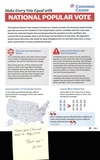
|
2022 aug 23

|
2022 aug 23

|
2022 aug 23

|
2022 aug 23

|
More... |
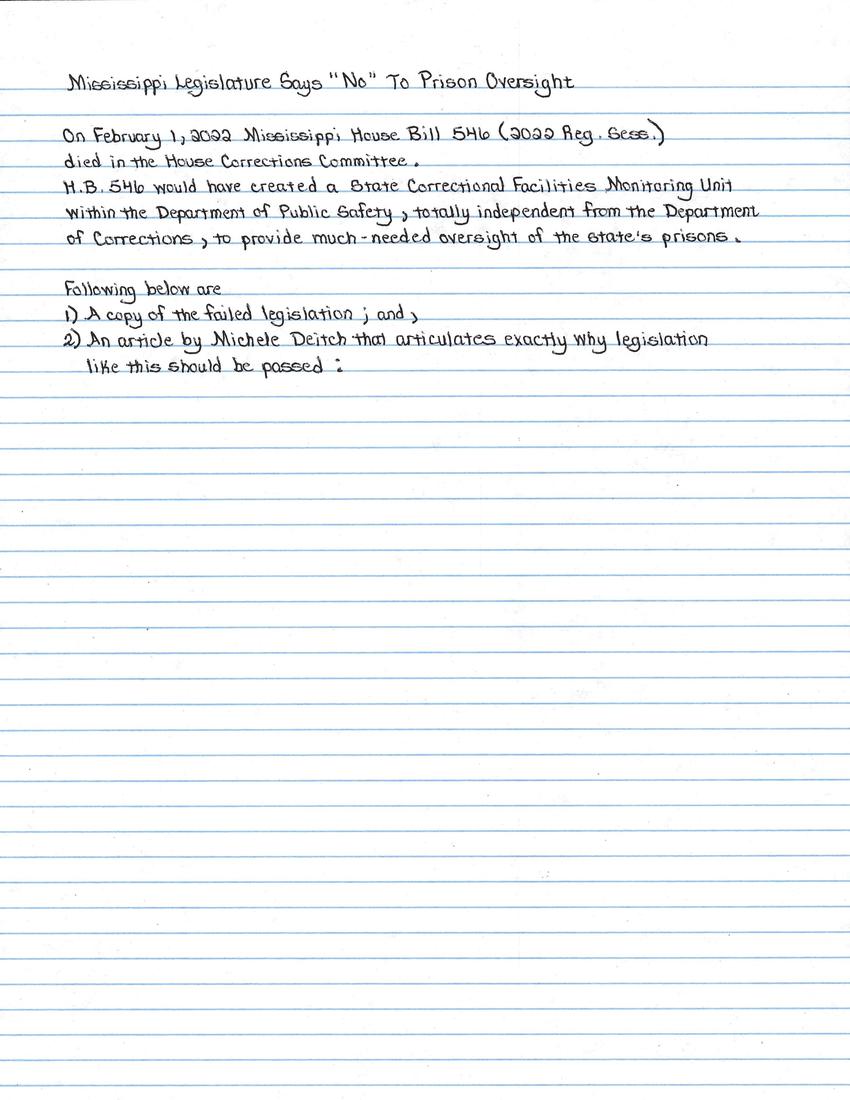
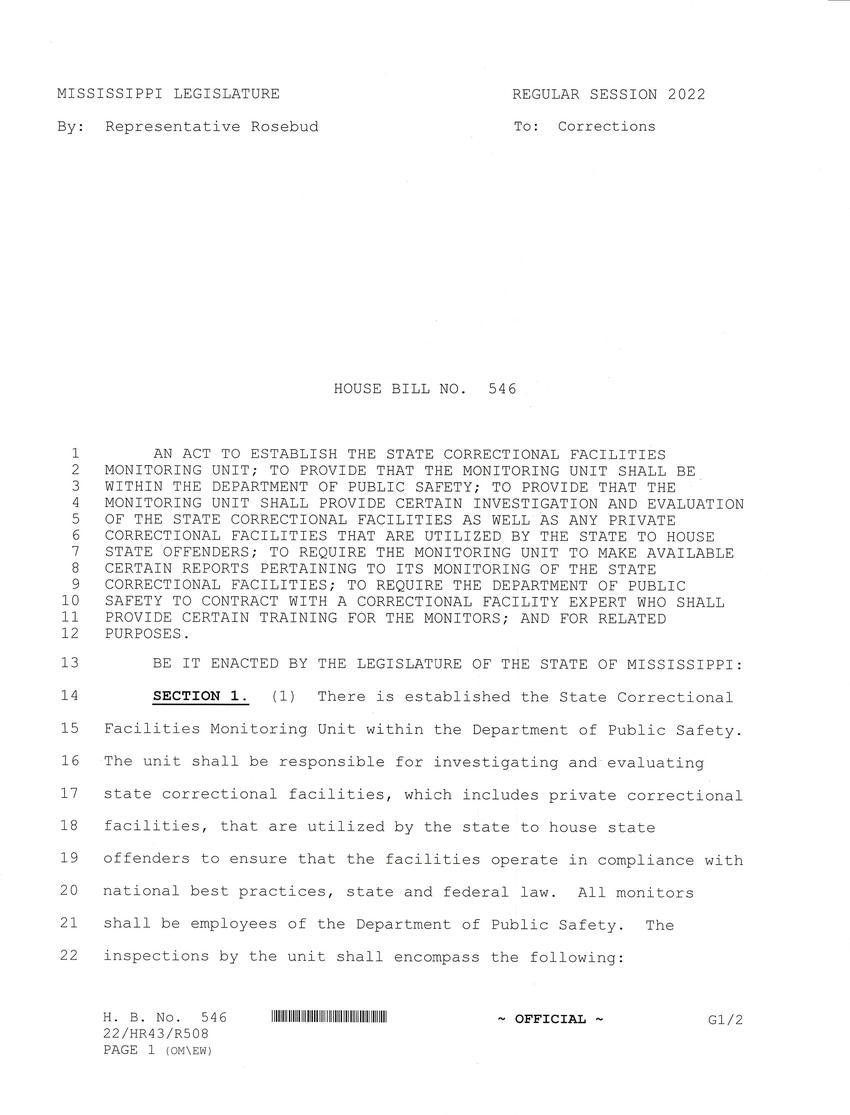
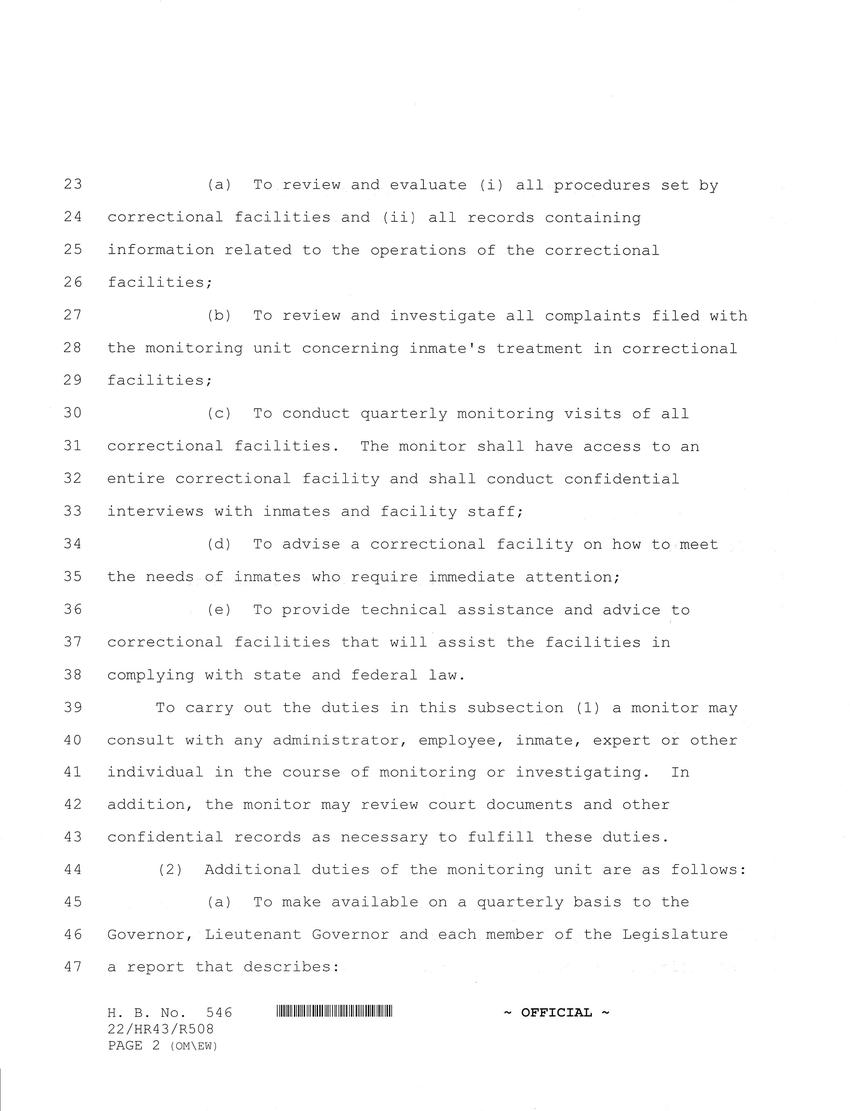
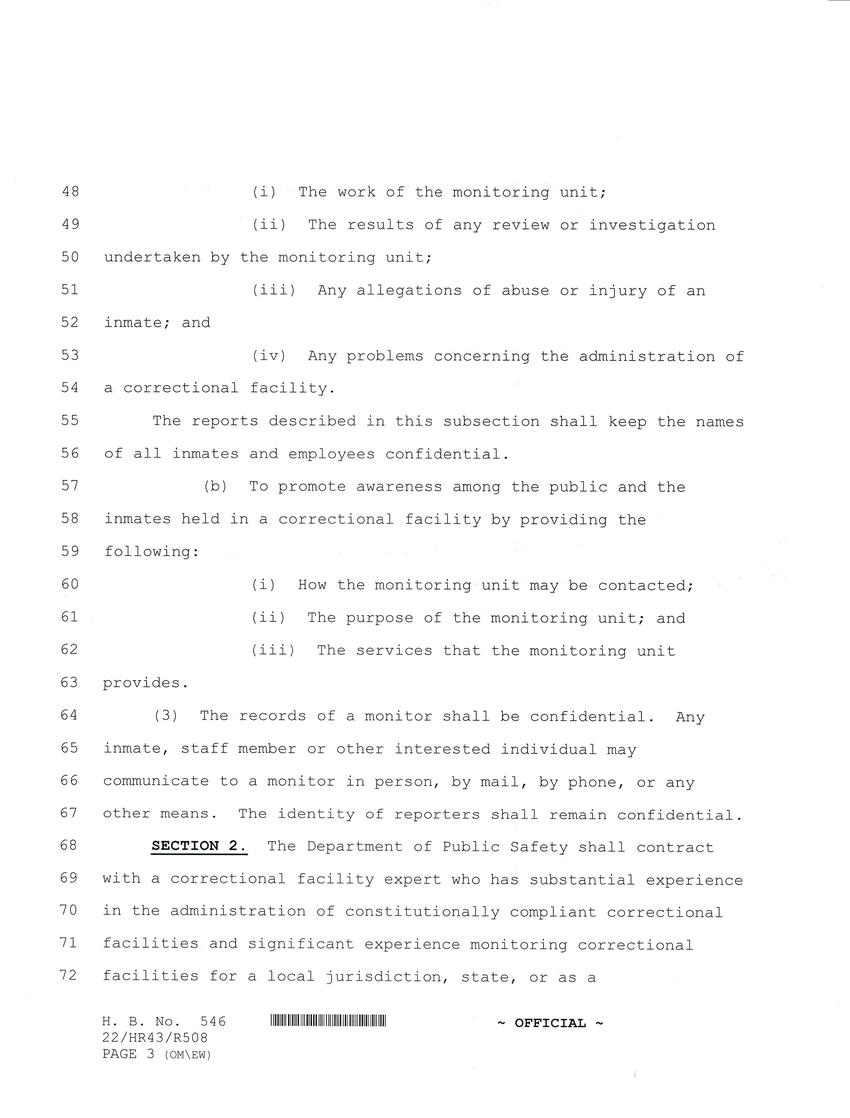
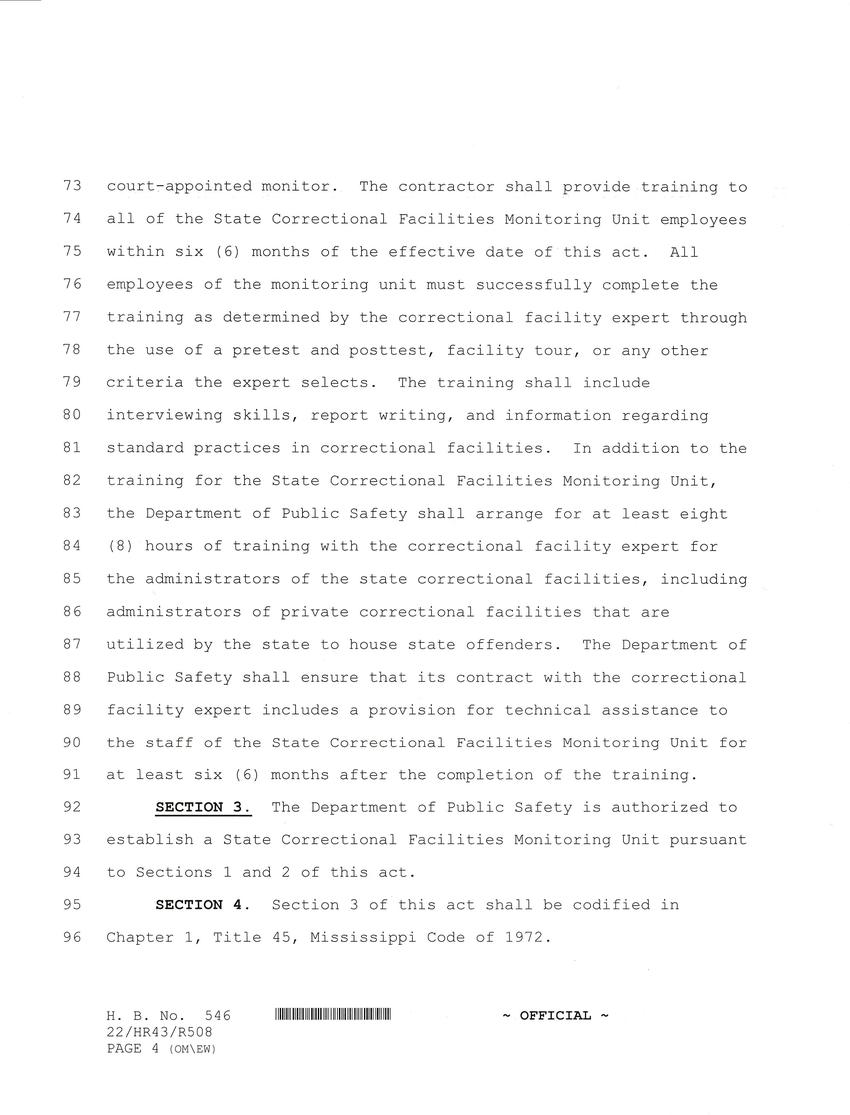
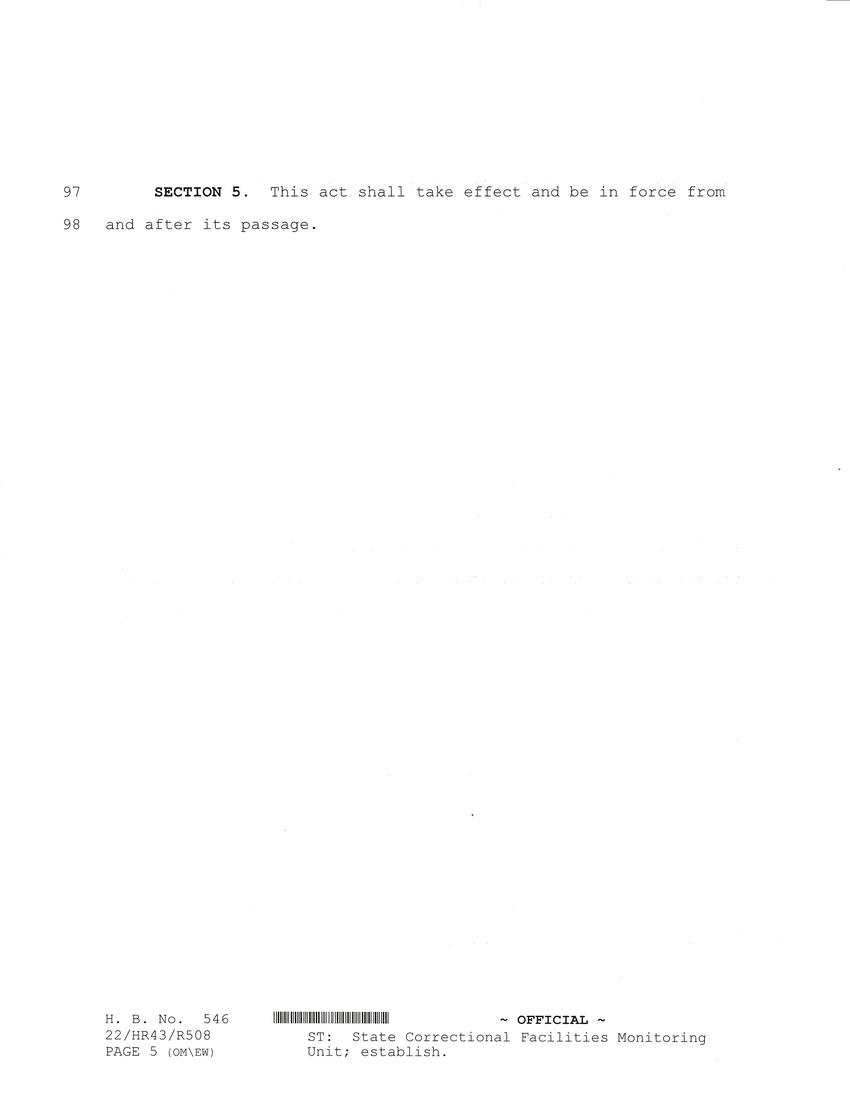

Replies (1)
It is unfortunate that this bill failed. Oversight is sorely needed for the justice and correction systems of every state. Your oversight of the legislature of Mississippi is impressive and helpful, since so often, failed bills do not make the news (at least nationally). Thank you for your continued service to your fellow inmates. It is people like you that holds out hope for the rest of humanity. In a troubled world, you are like a bright light glowing in the darkness. Stay bright brother!
Father John
March 9, 2022